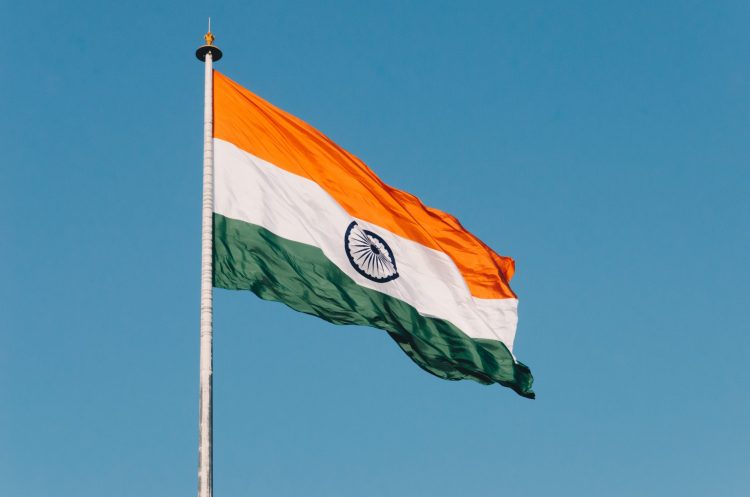- 25 Jun, 2023
- 0
- Mel Gurtov
- Mel Gurtov
Modi’s Game, and Ours
Modi’s Game, and Ours
by Mel Gurtov
788 words
China on Their Minds
President Biden welcomed India’s prime minister Narendra Modi with much pomp and ceremony the other day. One senior US official said “there is no partner more consequential now and into the future than India”—quite a statement that Japan, South Korea, and Australia might quarrel with.
The president and other officials were effusive in praising India; “two democracies with shared value systems,” said Jake Sullivan, the national security adviser.
But beneath the surface of this high-profile engagement is one fact: The purpose of the visit was to cement India’s strategic partnership with the US, thereby accomplishing an overriding objective for each side—for India, to gain access to US military technology, and for the US, to extend containment of China in Asia. Democracy has nothing to do with the two countries’ increasing closeness.
From the conventional strategic standpoint, we would have to judge Modi’s visit a success. A parade of senior US officials has been visiting India recently—Sullivan and defense secretary Lloyd Austin, for example—to help India upgrade its military-industrial complex and strengthen ties in the Quad Security Dialogue Group (US-India-Japan-Australia).
The US and India together monitor Chinese economic and military activity in the Indian Ocean. They have established a joint forum on defense technology integration called INDUS-X.
Modi’s visit ensures that India will become a prime market for US military exports, which currently amounts to about $20 billion. One deal he and Biden concluded is for General Electric to build military jet engines in India in partnership with a state-owned Indian aeronautical company. The deal meets a major Indian defense concern: modernizing its jet fighters. For GE and other US military industries, the deal also promises long-term Indian dependence on US jet engine technology and other equipment.
That dependence will mean less Indian reliance on Russian weapons—an aim vocalized by a senior US official who said:
“You’ll see major cancellations of defense system purchases from Russia, in part because we know Russia can’t actually provide it, that Russia is consuming its own defense production very quickly in this terrible war in Ukraine. And everyone around the world who buys Russian equipment is worried about whether they can get spare parts and then new systems, given the supply chain problems that Russia is experiencing.”
Shared Values?
As for shared values, Biden surely is aware that India is another of those illiberal democracies. The press and courts are under pressure from Modi, and violence against Muslims is commonplace. In one international ranking of democracies, India is considered an “electoral autocracy.”
The main leader of the political opposition, Rahul Gandhi, has been jailed and deprived of his seat in parliament. This week, more than 70 Democratic lawmakers urged President Biden in a letter to press Modi on upholding democratic values and human rights, citing “troubling signs in India toward the shrinking of political space, the rise of religious intolerance, the targeting of civil society organizations and journalists, and growing restrictions on press freedoms and internet access.”
But Modi is immensely popular, cultivating his image as the indefatigable Hindu leader by dominating the news, using FDR-style monthly radio chats, and seeming to be concerned about people’s day-to-day problems. His game is to preserve the figment of democracy at home while exploiting big powers abroad.
In fact, the visit to the US is bound to embolden him to aggrandize power even more, knowing how much the US needs him. It’s an old phenomenon in international politics, in which the lesser power has leverage over its major-power partner.
An All-too-familiar Story
We’ve been down this road before: The US overlooks repressive partners when strategic interests are considered overriding. Saudi Arabia is the latest example. But the tactic rarely works, as the Saudis are now demonstrating.
Defections to the higher bidder are the norm, China in the Saudi case, as Beijing offered billions of dollars in investments, more oil purchases, and help in reducing tensions with Iran. For all his smiles as the Americans embrace him, PM Modi is still buying up Russian oil and refusing to condemn Russia’s attack on Ukraine.
There is no assurance that India will stand with the US in the event of a confrontation with China. Money and arms are the ties that bind, whereas shared values and strategic unity are often fleeting.
As Ashley Tillis writes in Foreign Affairs:
“As the Biden administration proceeds to expand its investment in India, it should base its policies on a realistic assessment of Indian strategy and not on any delusions of New Delhi becoming a comrade-in-arms during some future crisis with Beijing.”
—————————-end—————————-
Mel Gurtov, syndicated by PeaceVoice, is Professor Emeritus of Political Science at Portland State University and blogs at In the Human Interest.
© 2023 PeaceVoice

mel